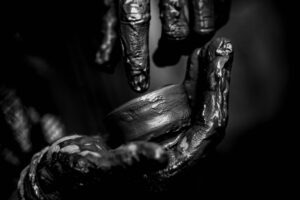Embryo-morphemes, also known as partial morphemes or semi-morphemes, are a fascinating linguistic phenomenon found in the Albanian language. They are essentially incomplete morphemes that do not have enough material to form a complete unit of meaning on their own. Instead, they rely on other morphemes to combine with them in order to convey meaning.
In Albanian, embryo-morphemes are typically found as prefixes or suffixes attached to words. These partial morphemes often carry grammatical or derivational information and can significantly impact the meaning of a word. For example, the prefix “i-” indicates possession in Albanian, as in the word “imë”, which means “my”.
What makes embryo-morphemes in Albanian so intriguing is their ability to combine with other morphemes in a highly productive manner. This allows for a great deal of flexibility and creativity in forming new words and conveying nuanced meanings. For example, the embryo-morpheme “mik-” means “friend” and can be combined with various suffixes to create words like “mikësor” (friendly), “mikpritje” (hospitality), and “mikpritës” (host).
Furthermore, the presence of embryo-morphemes in Albanian highlights the language’s rich history and complex evolution. Through the study of these partial morphemes, linguists can gain insight into the internal structure of Albanian words and the historical processes that have shaped the language over time.
Overall, the exploration of embryo-morphemes in the Albanian language offers a fascinating glimpse into the intricate and dynamic nature of linguistic morphology. By delving into the world of partial morphemes, linguists can uncover the hidden layers of meaning and complexity that make Albanian a truly unique and captivating language.






























Add Comment